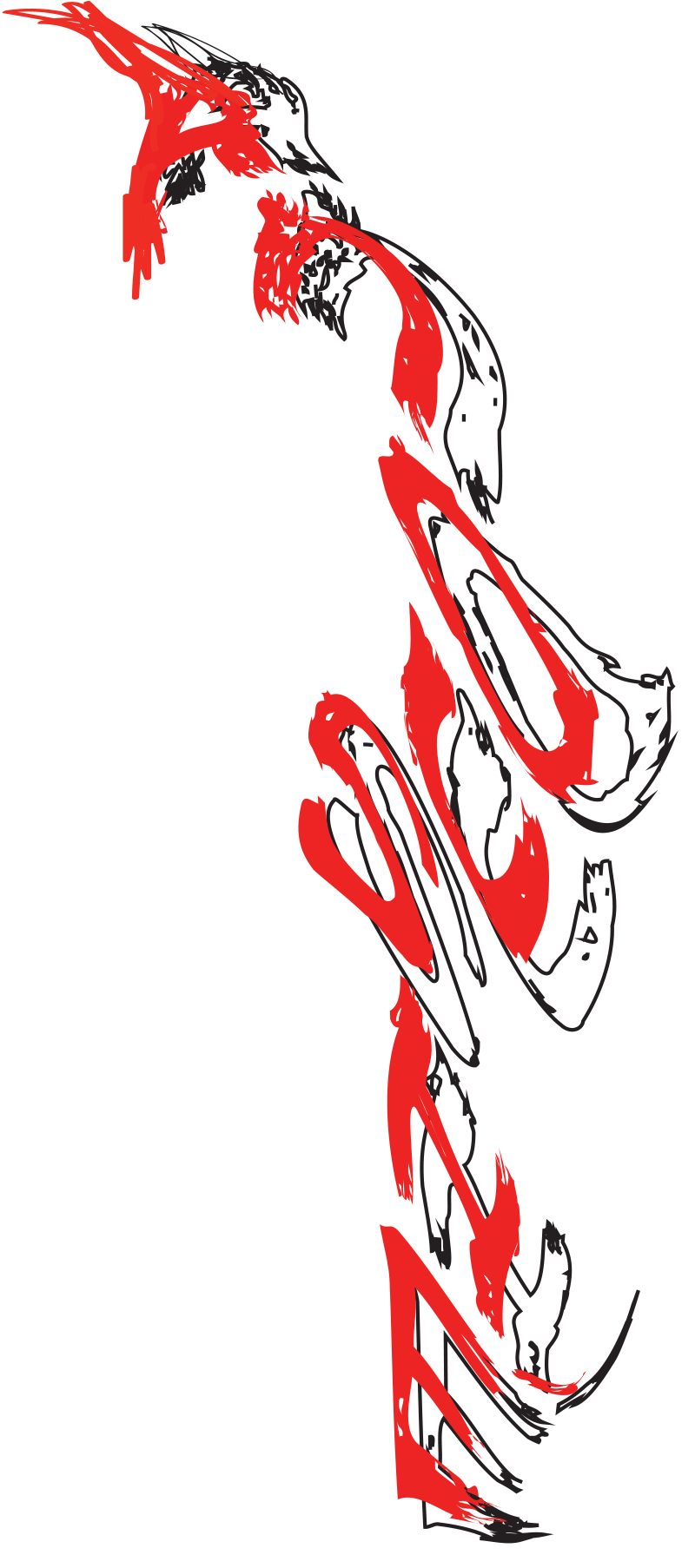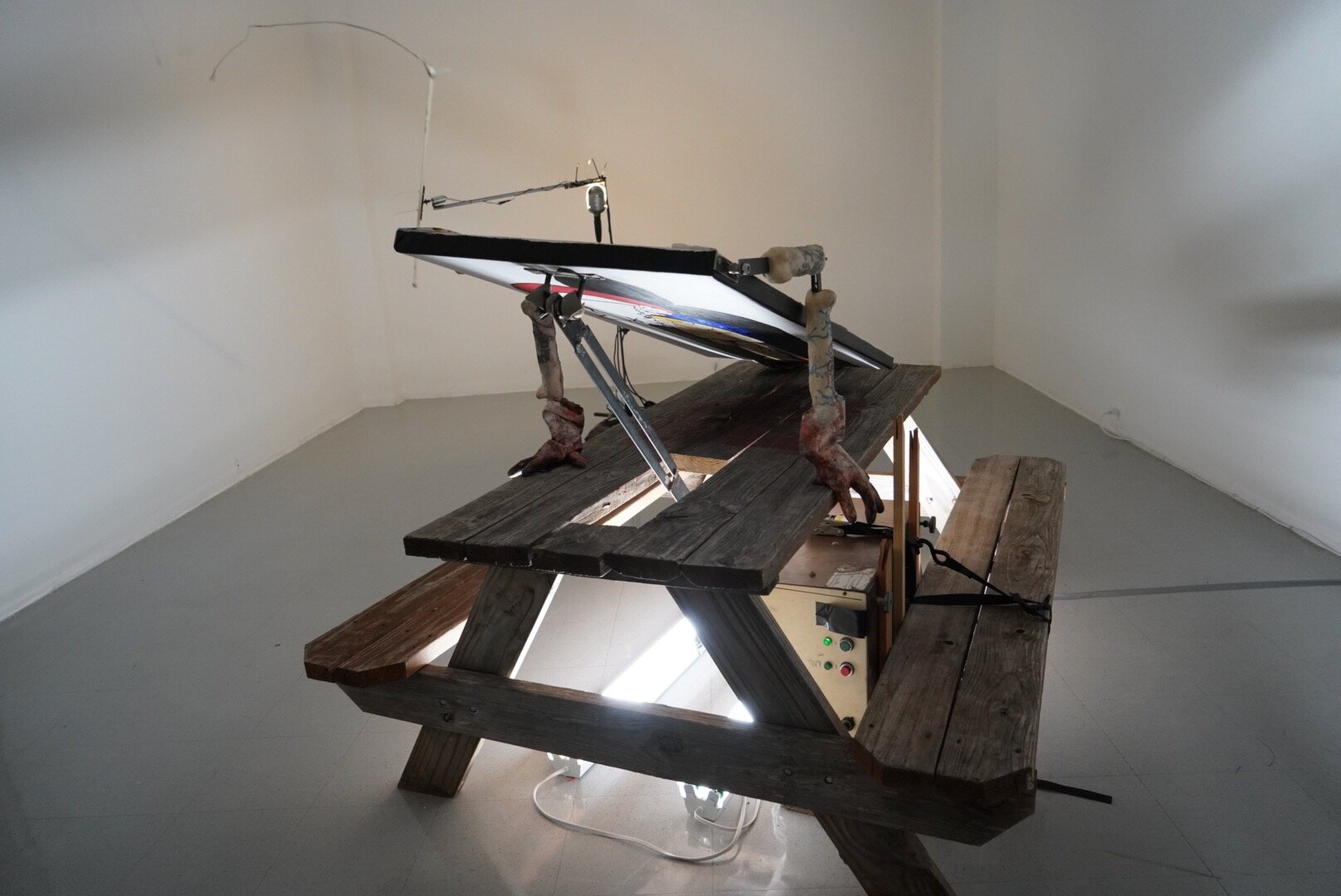
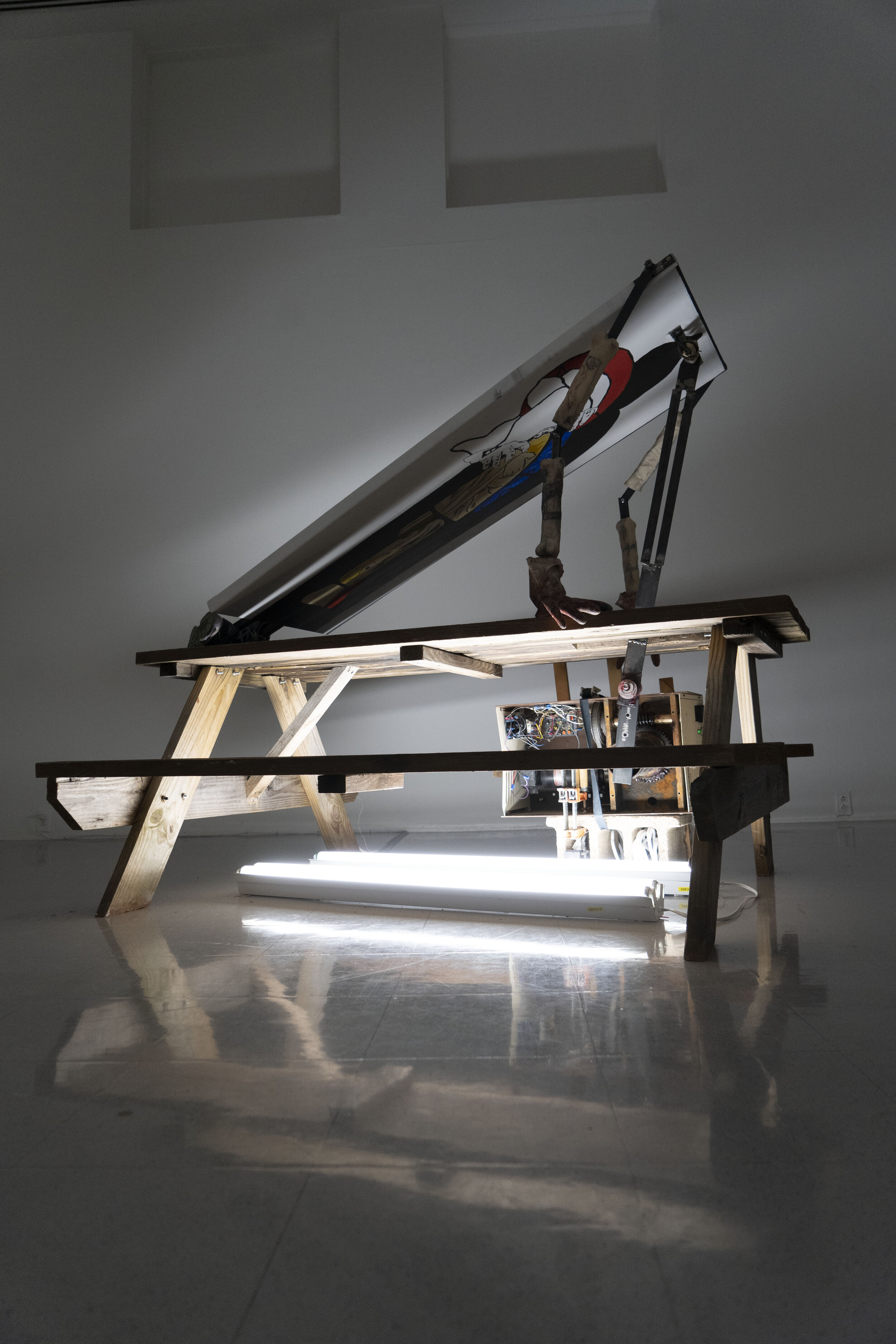
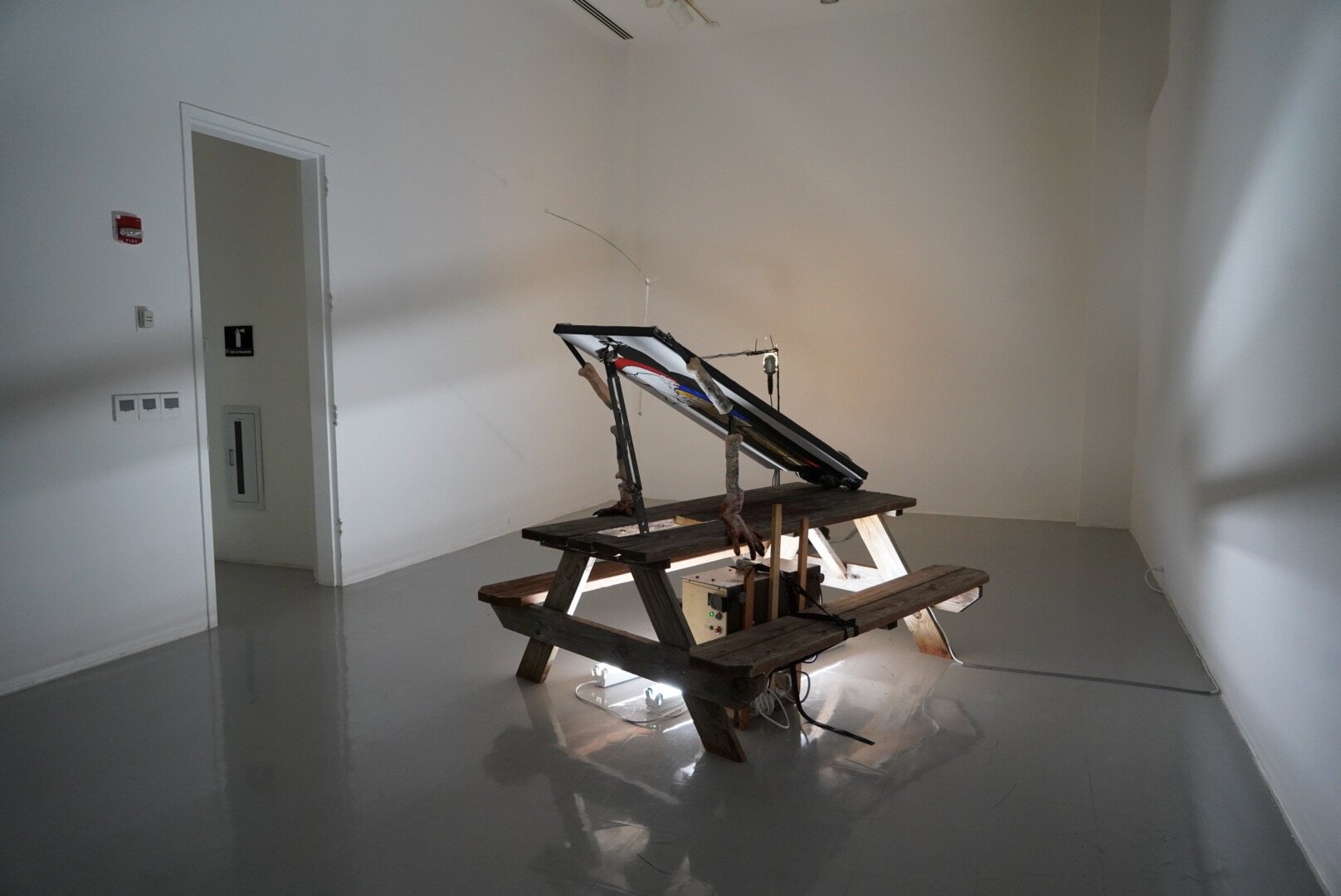
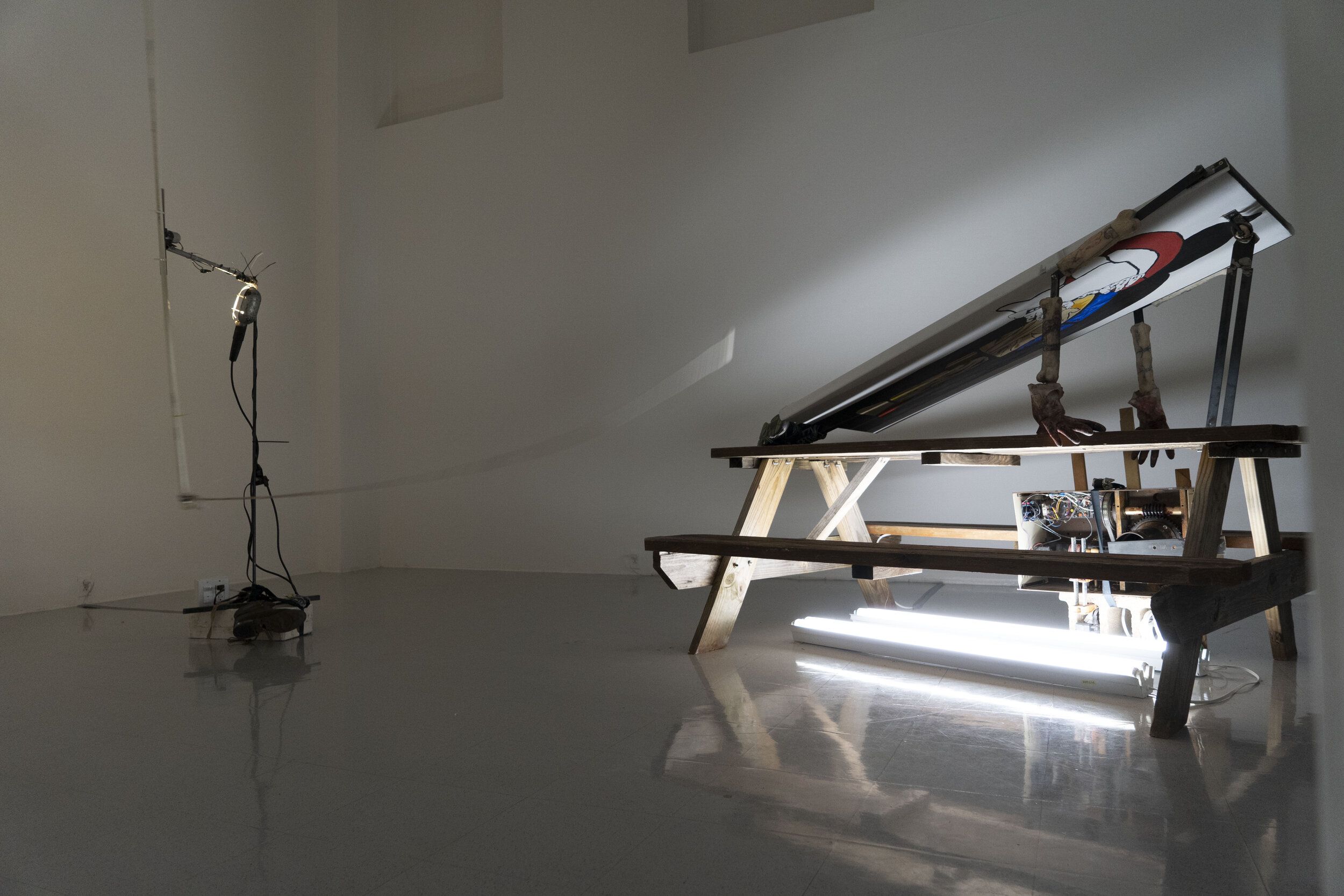
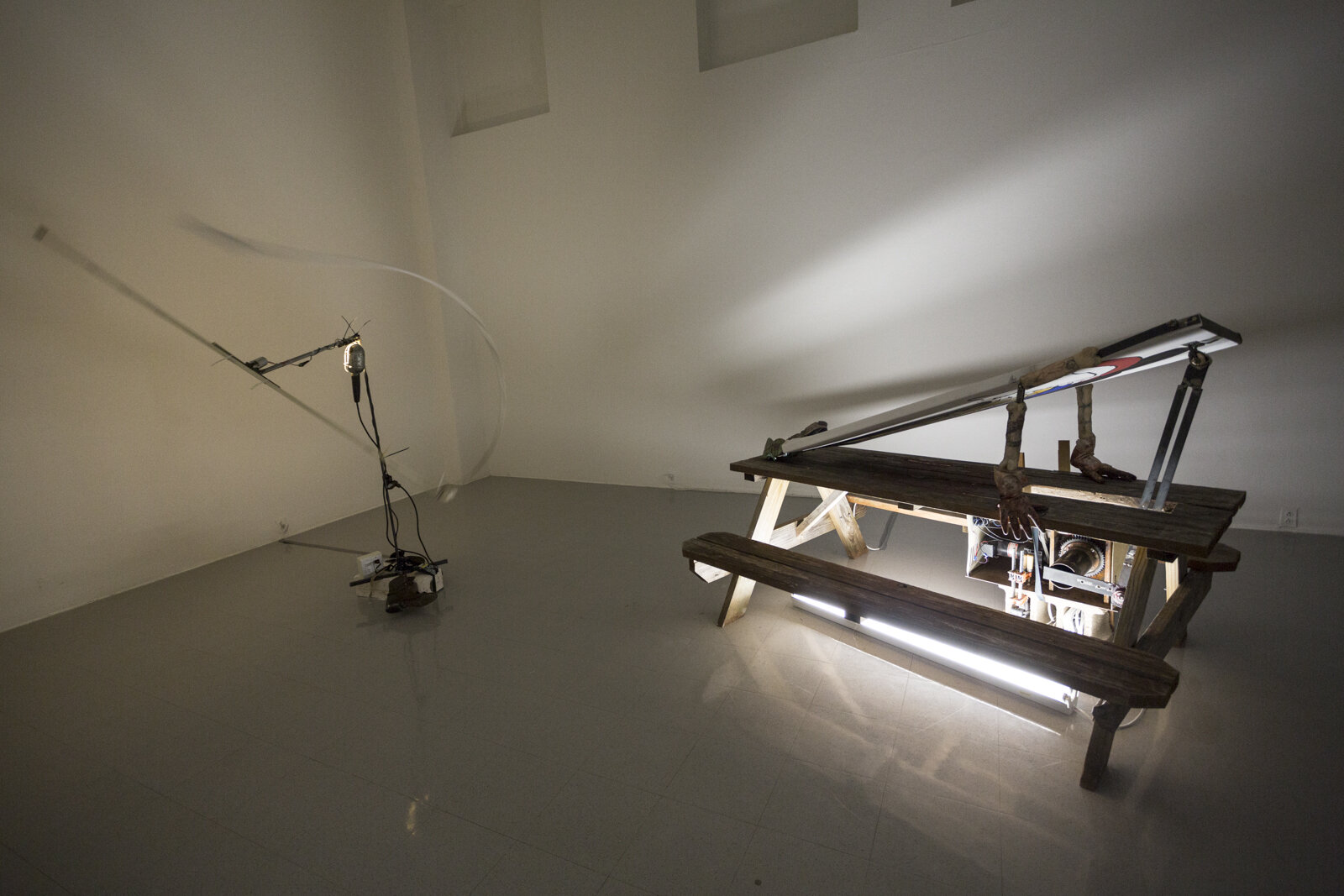

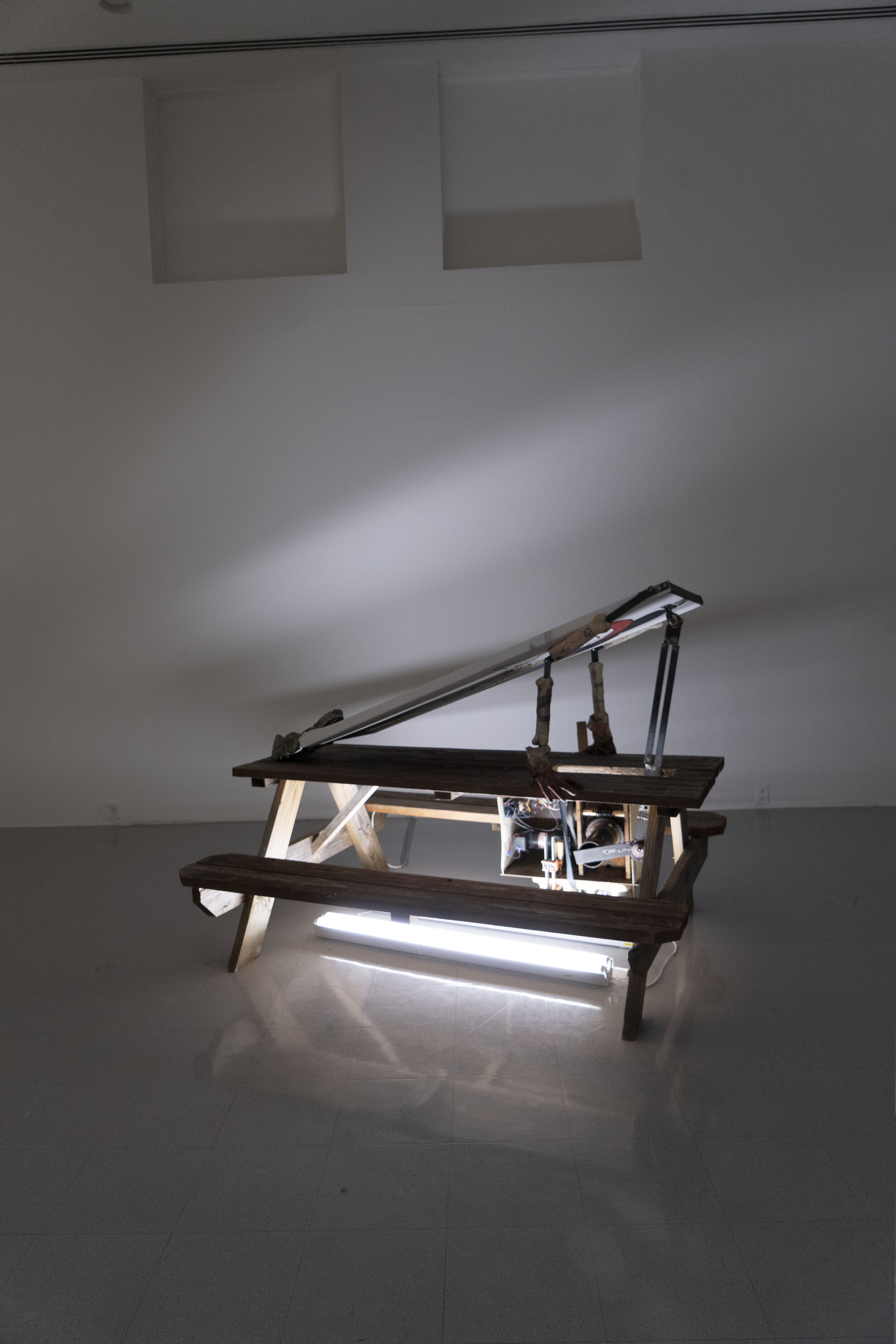
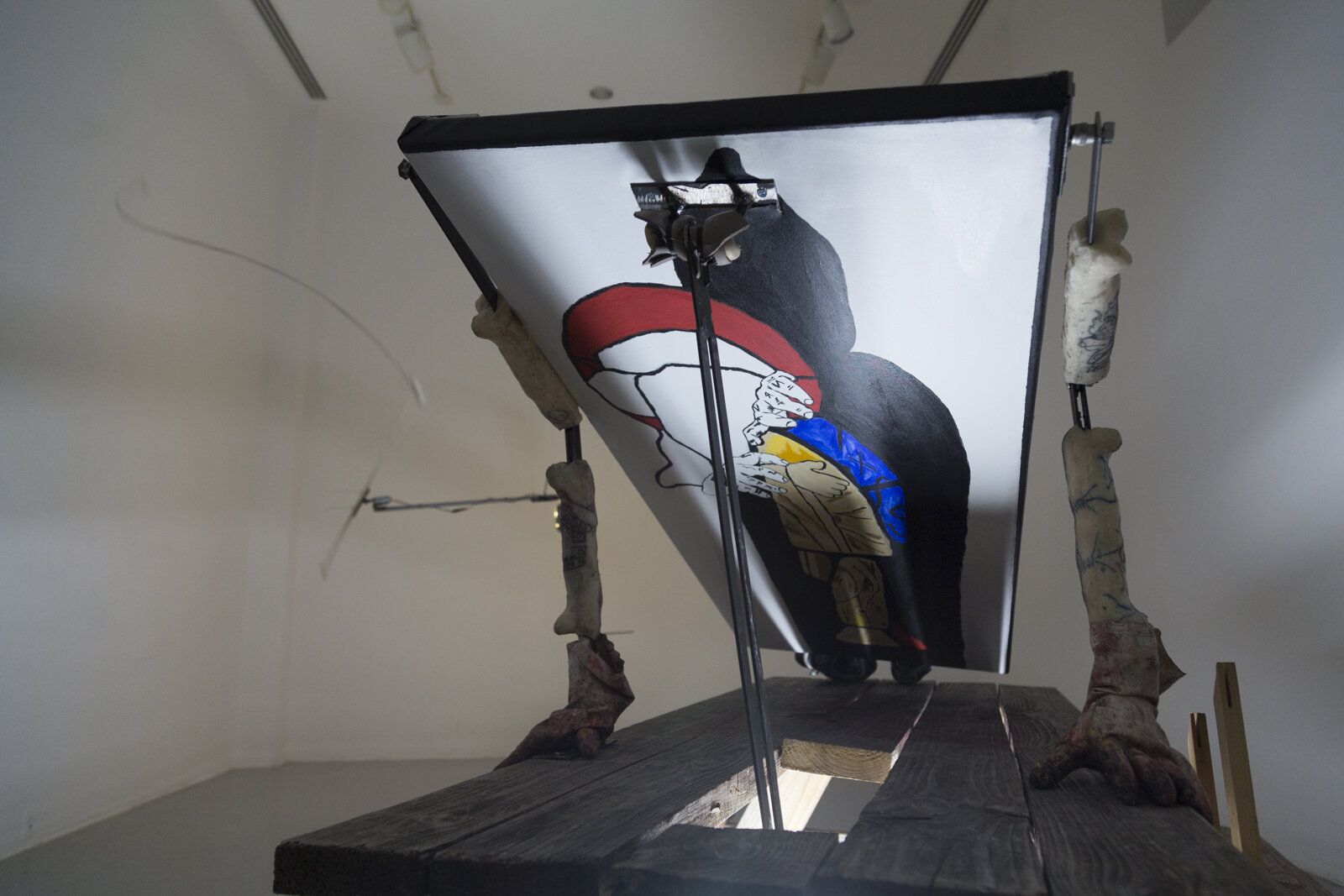
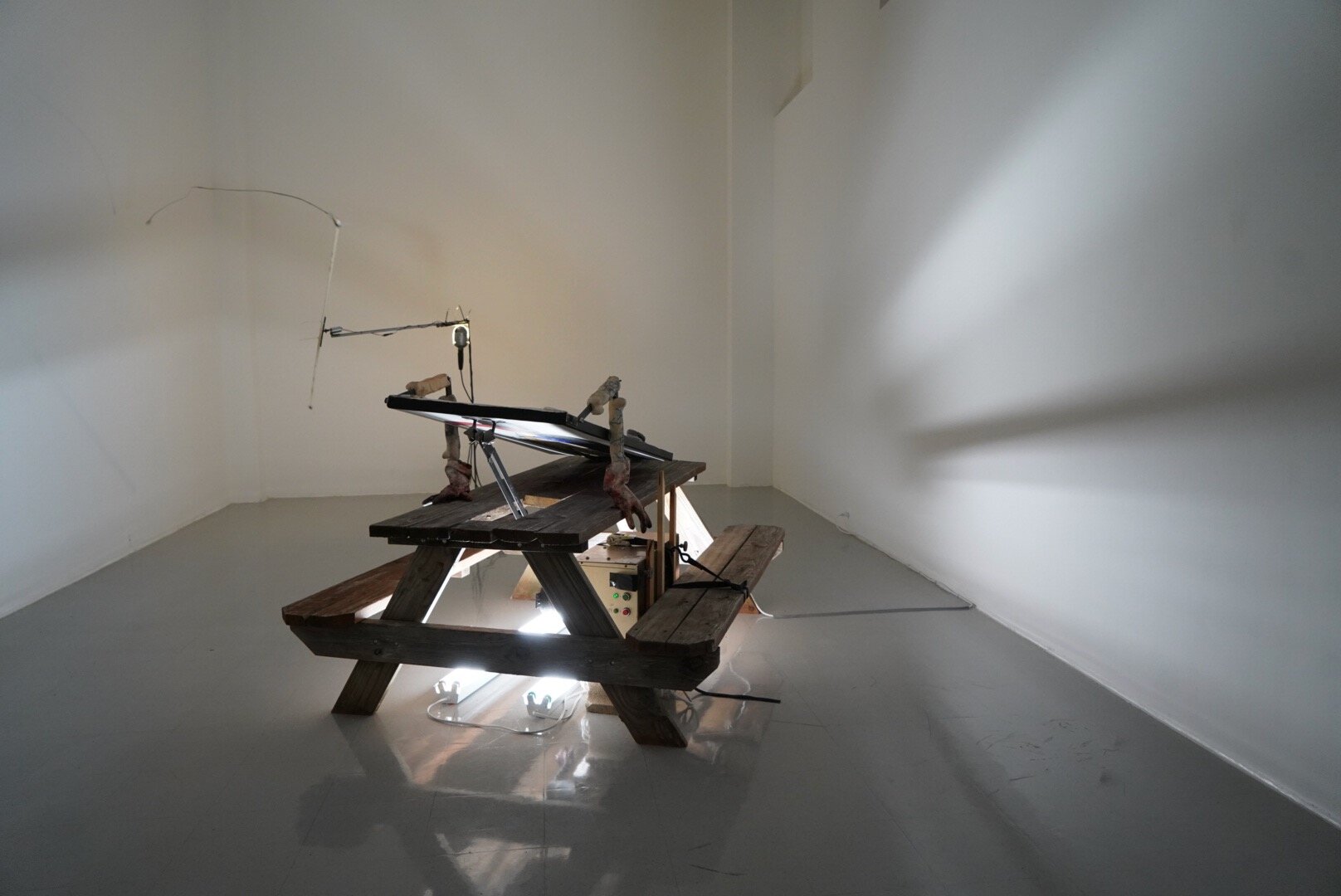
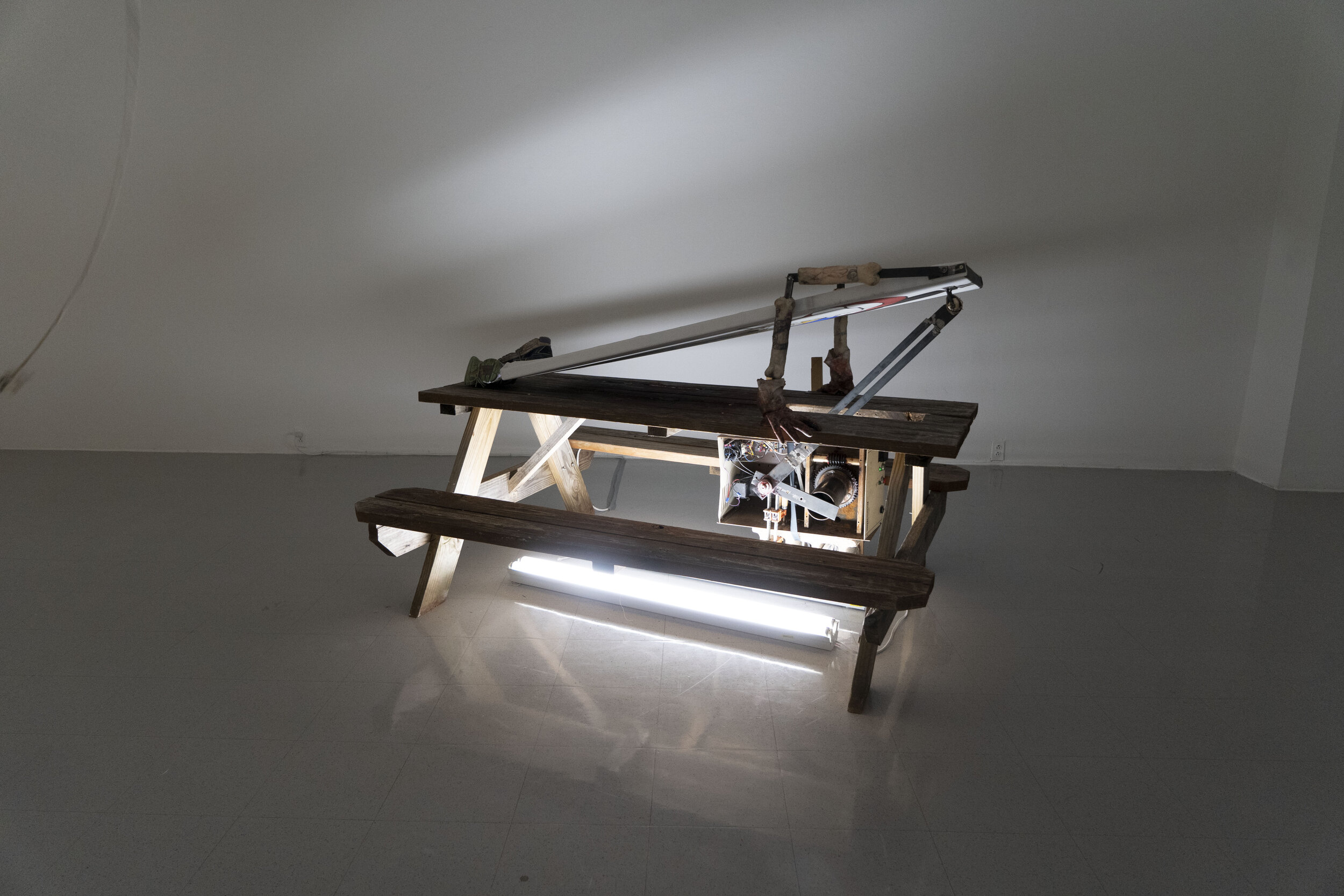
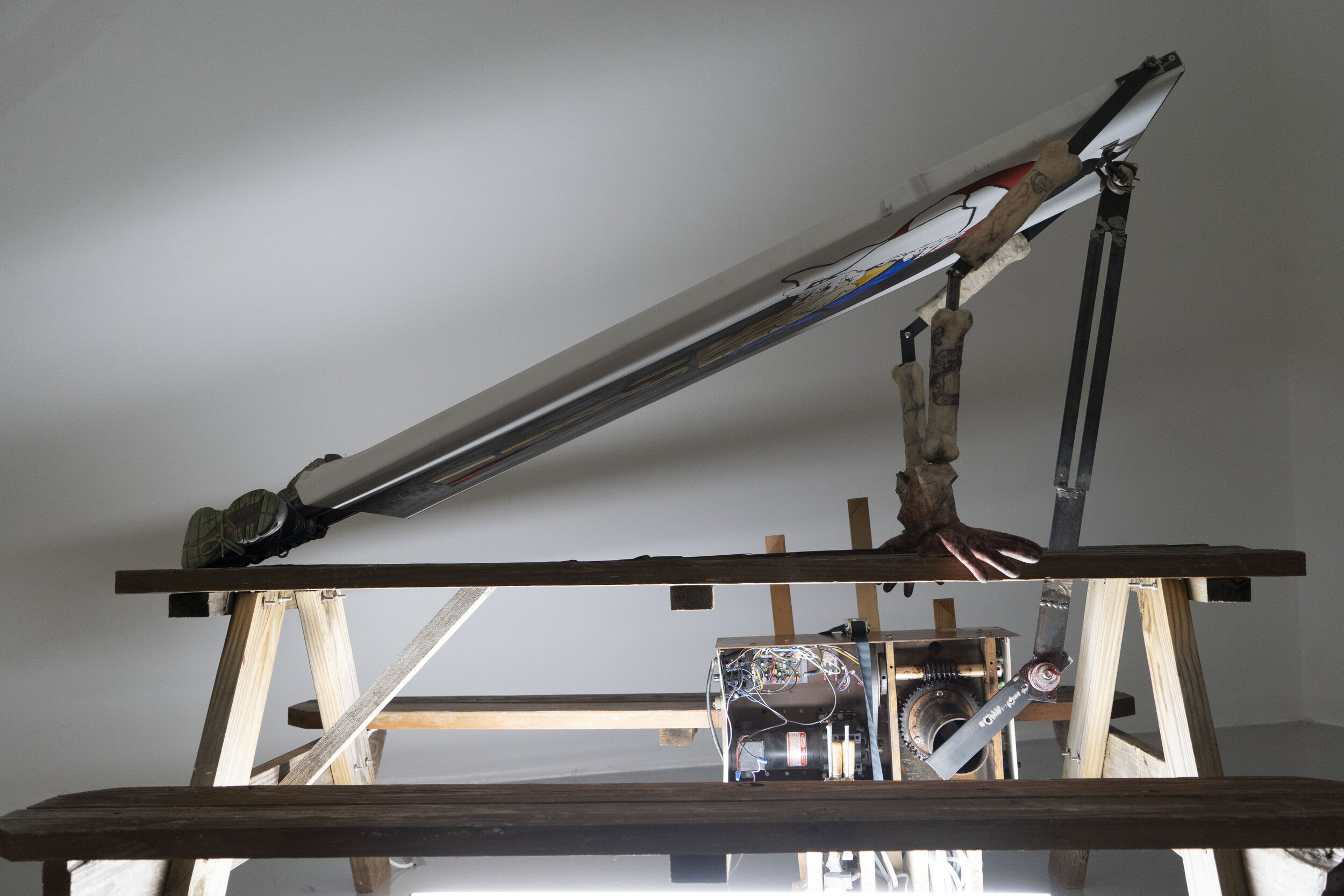
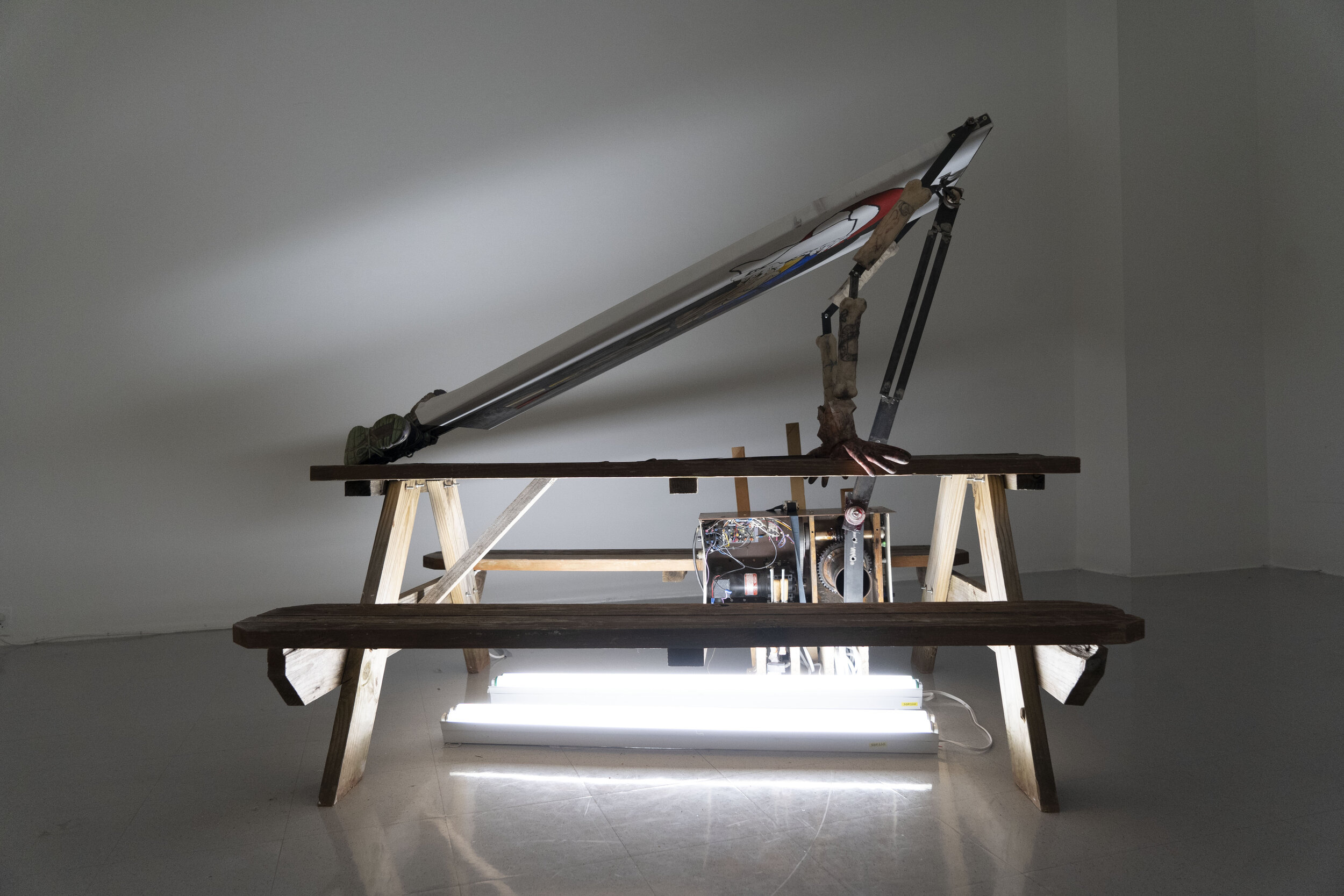
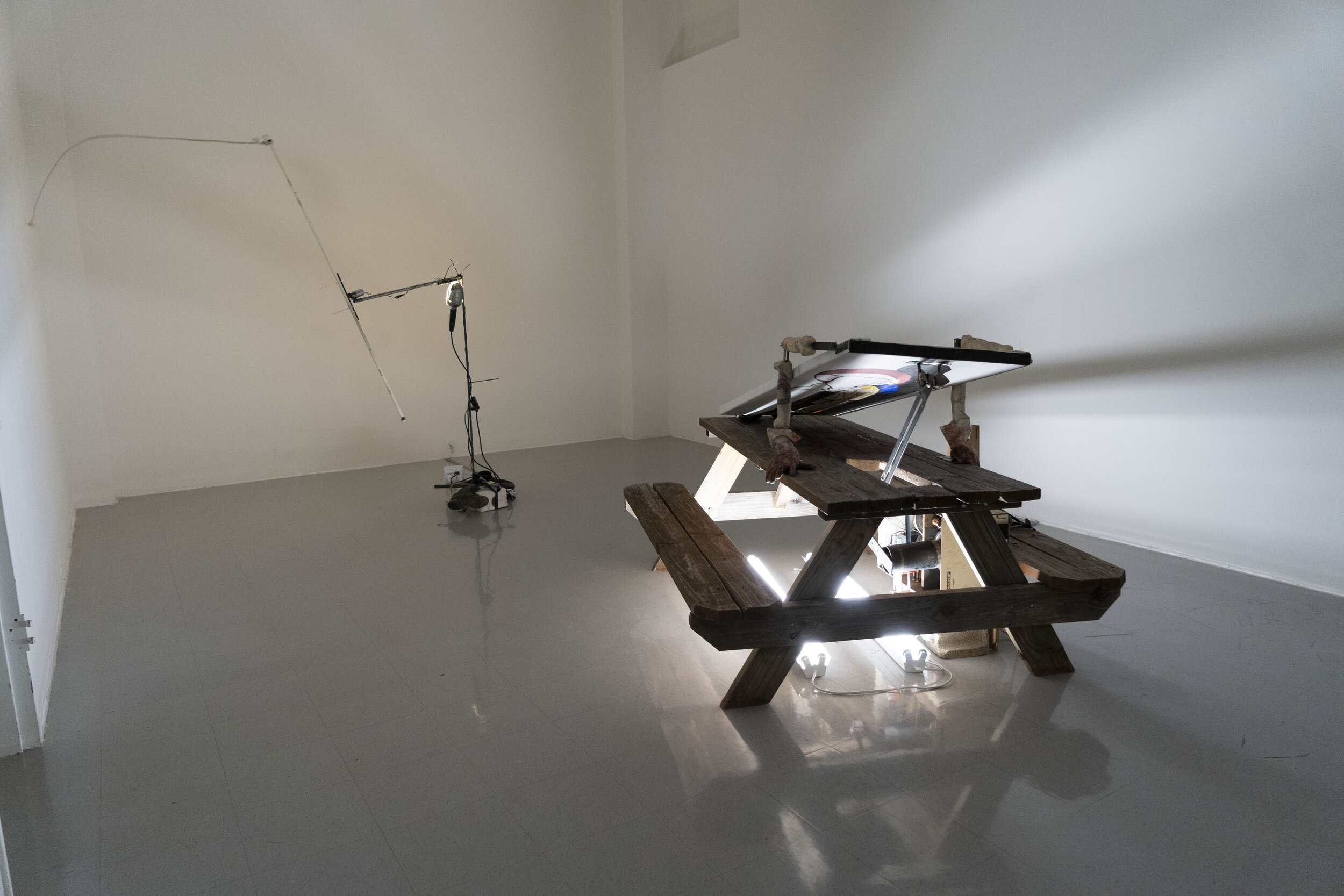
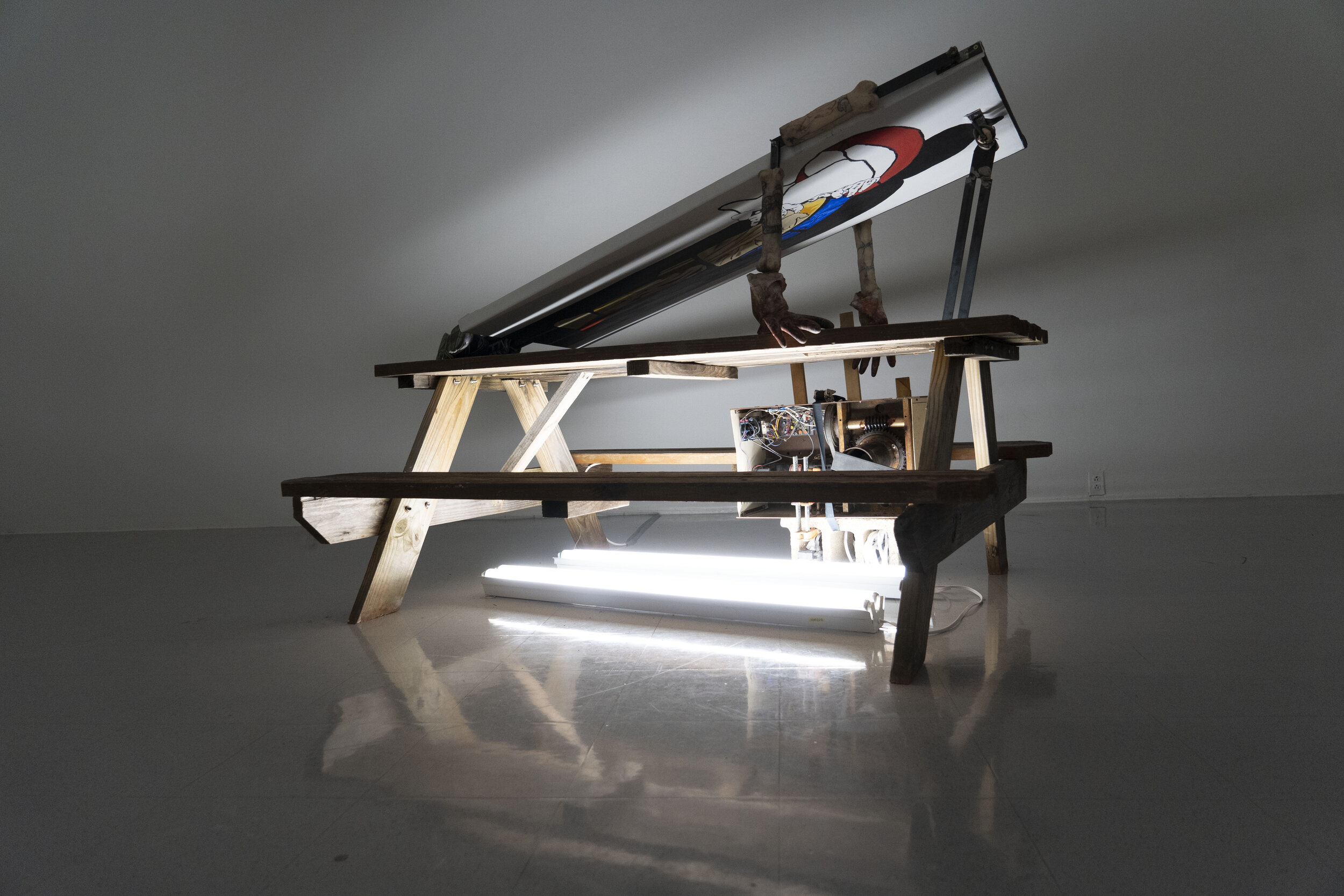
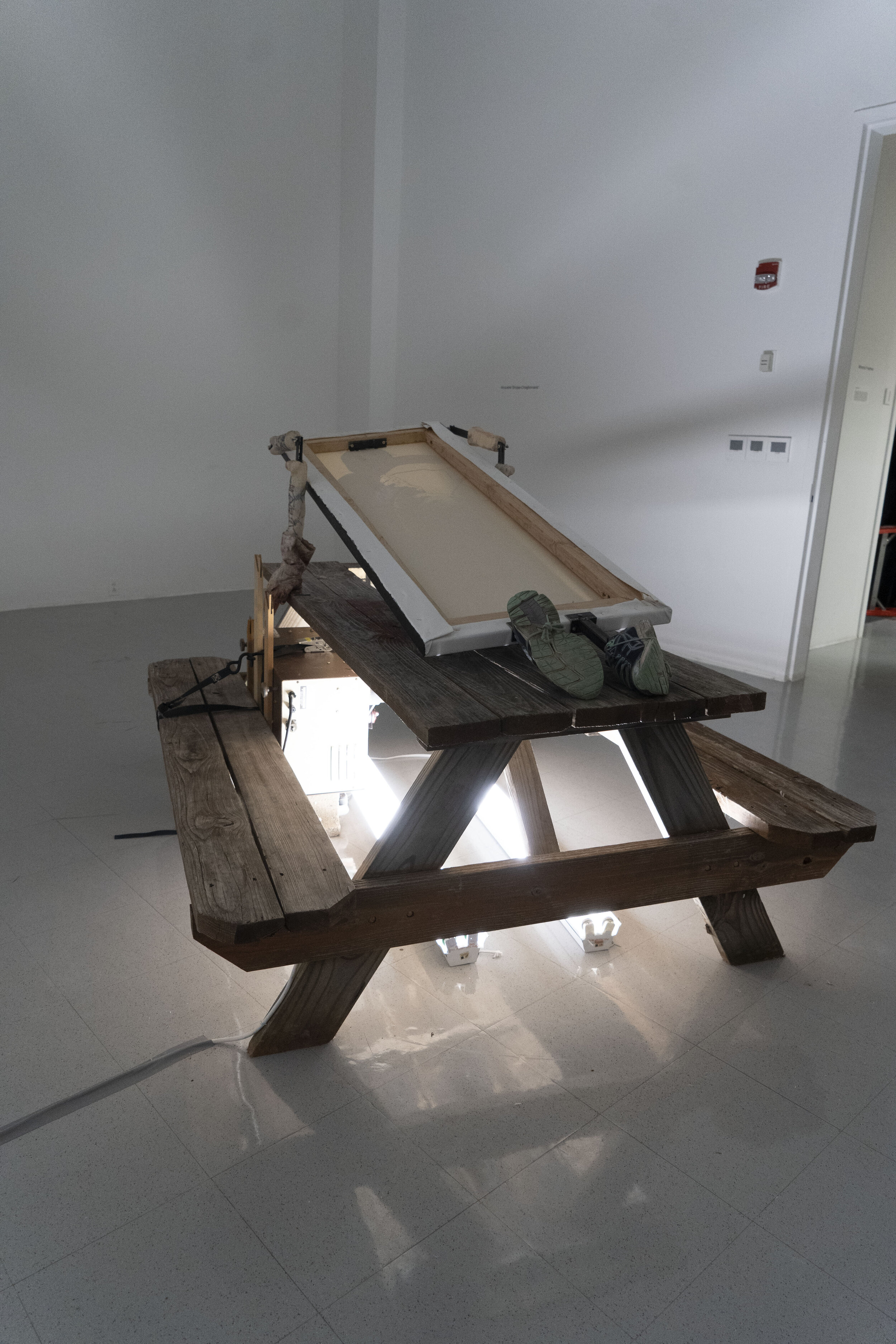
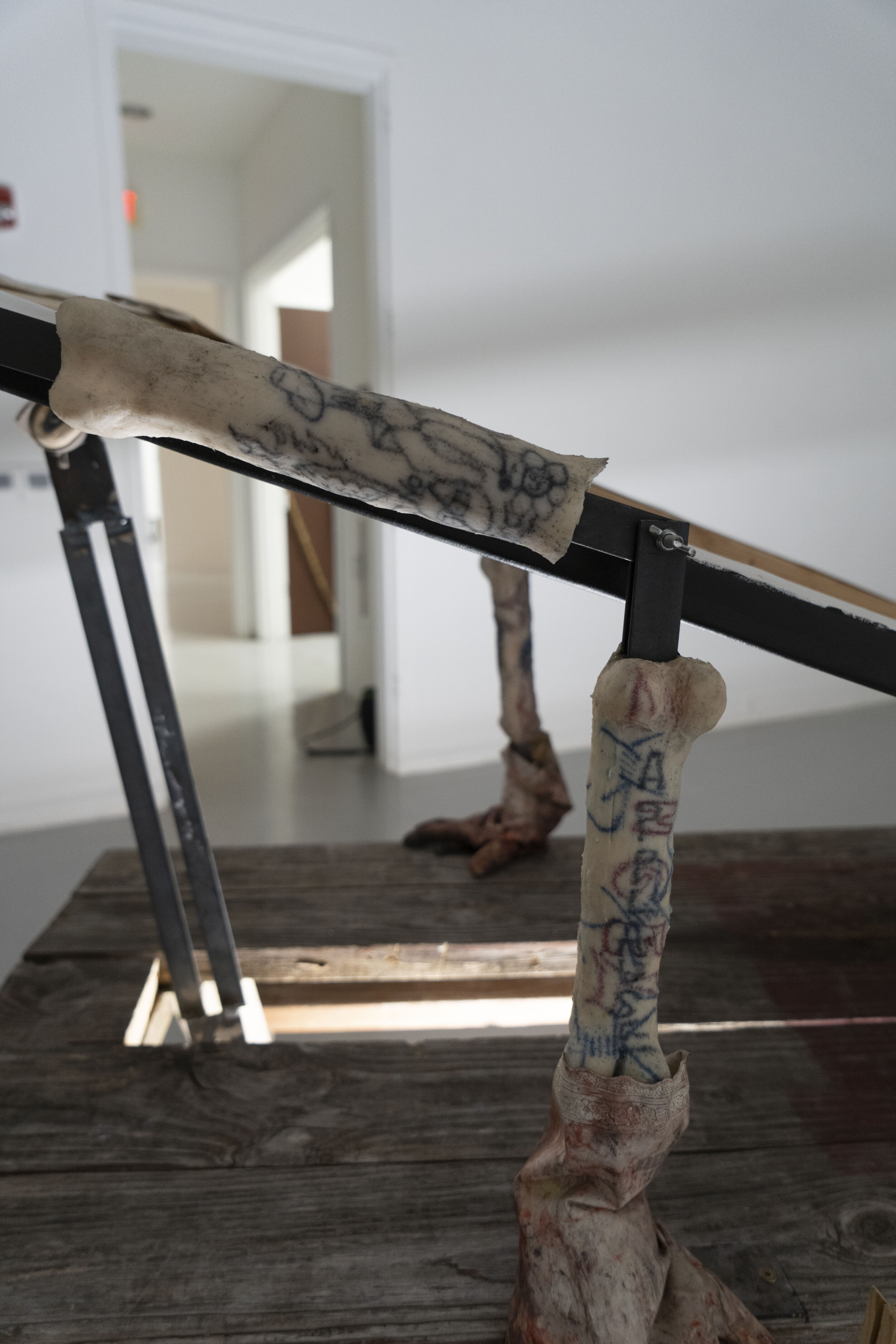
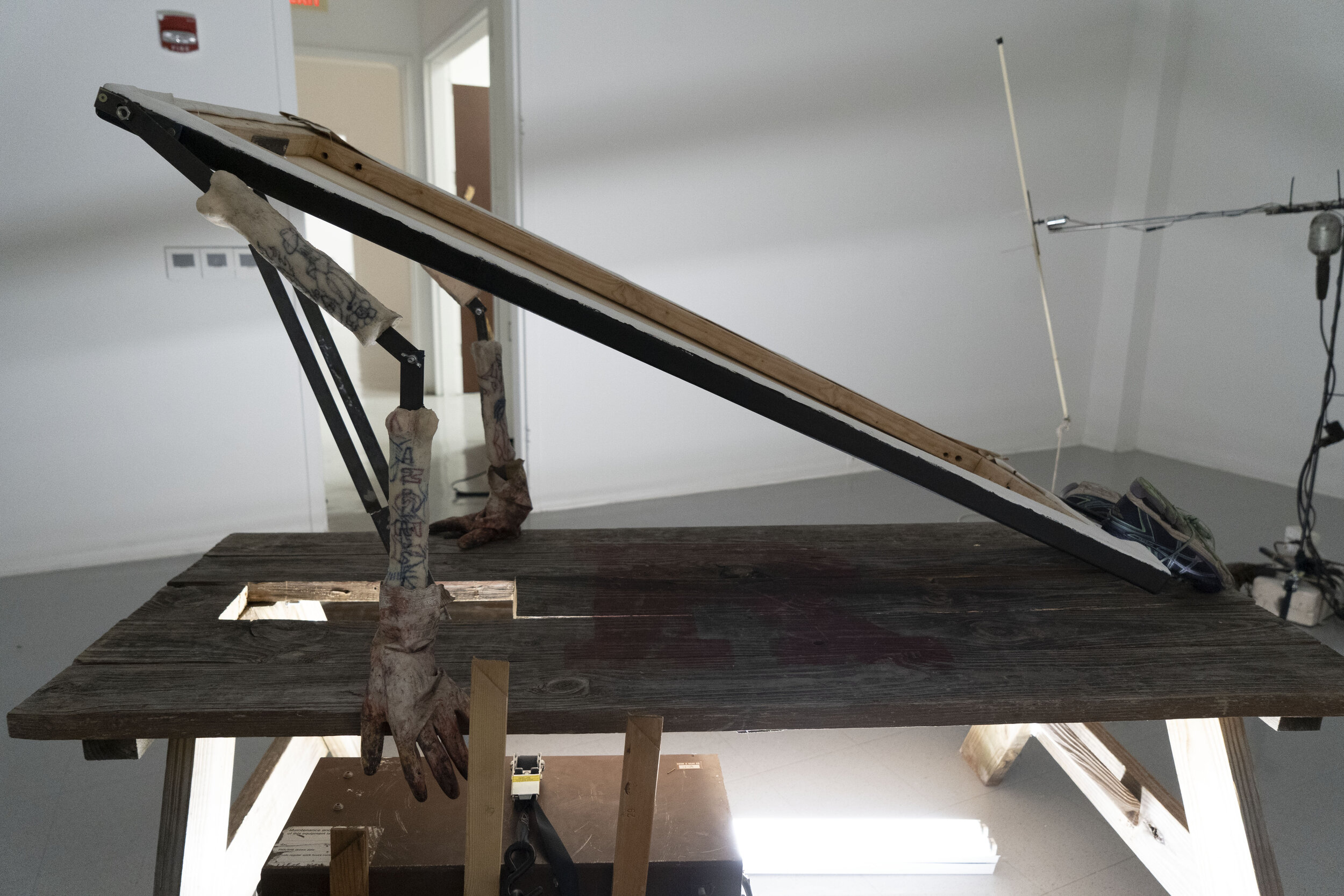
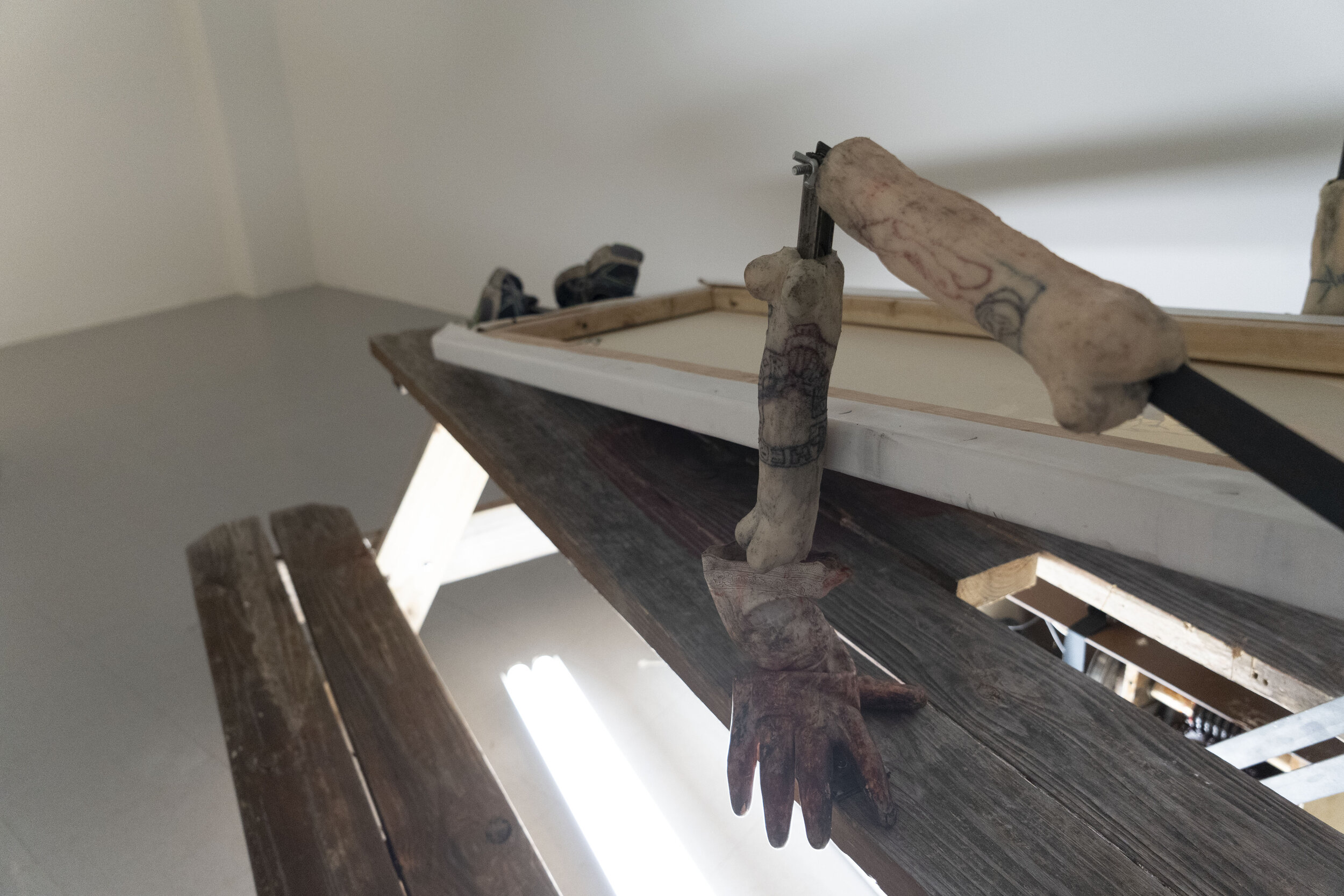
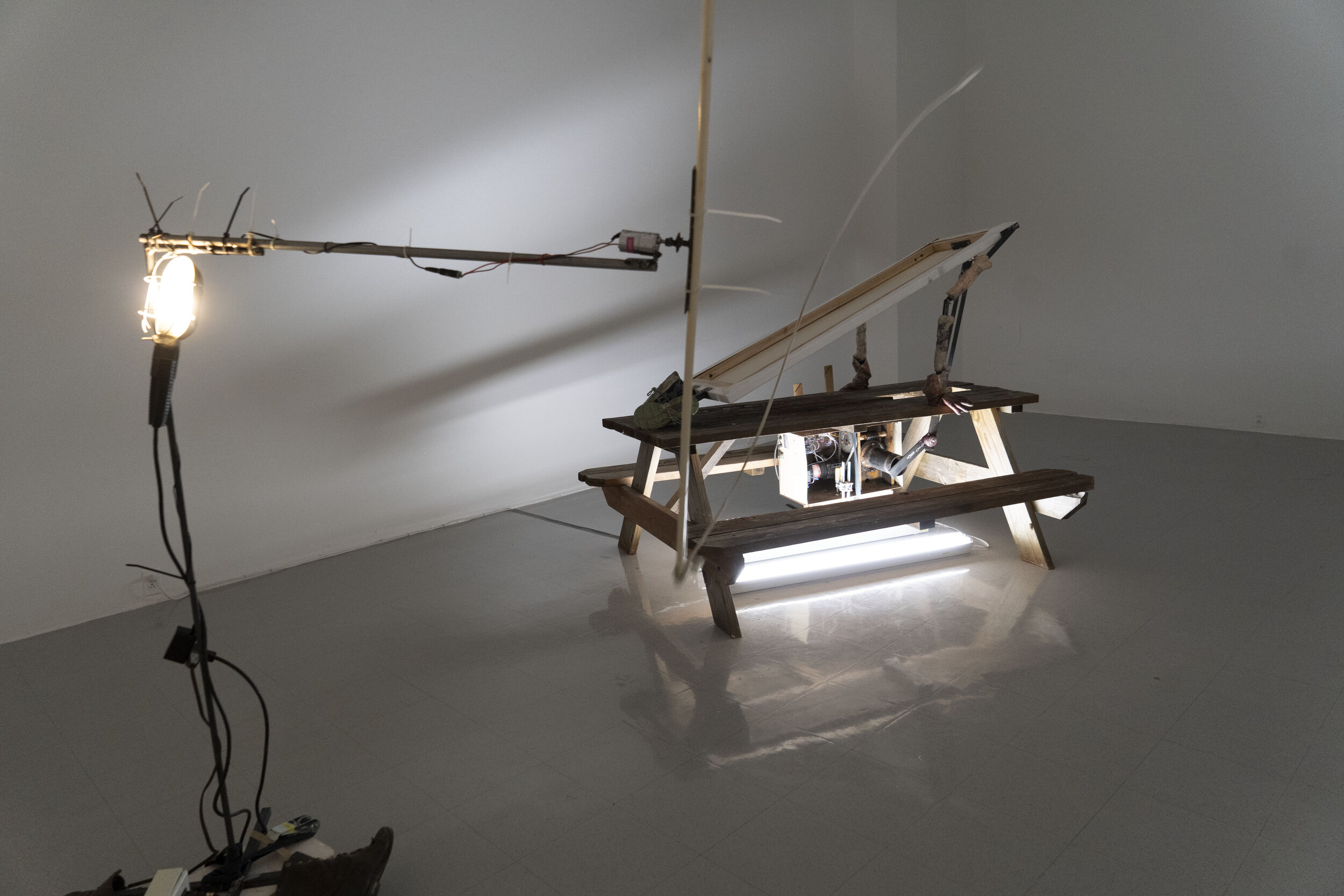
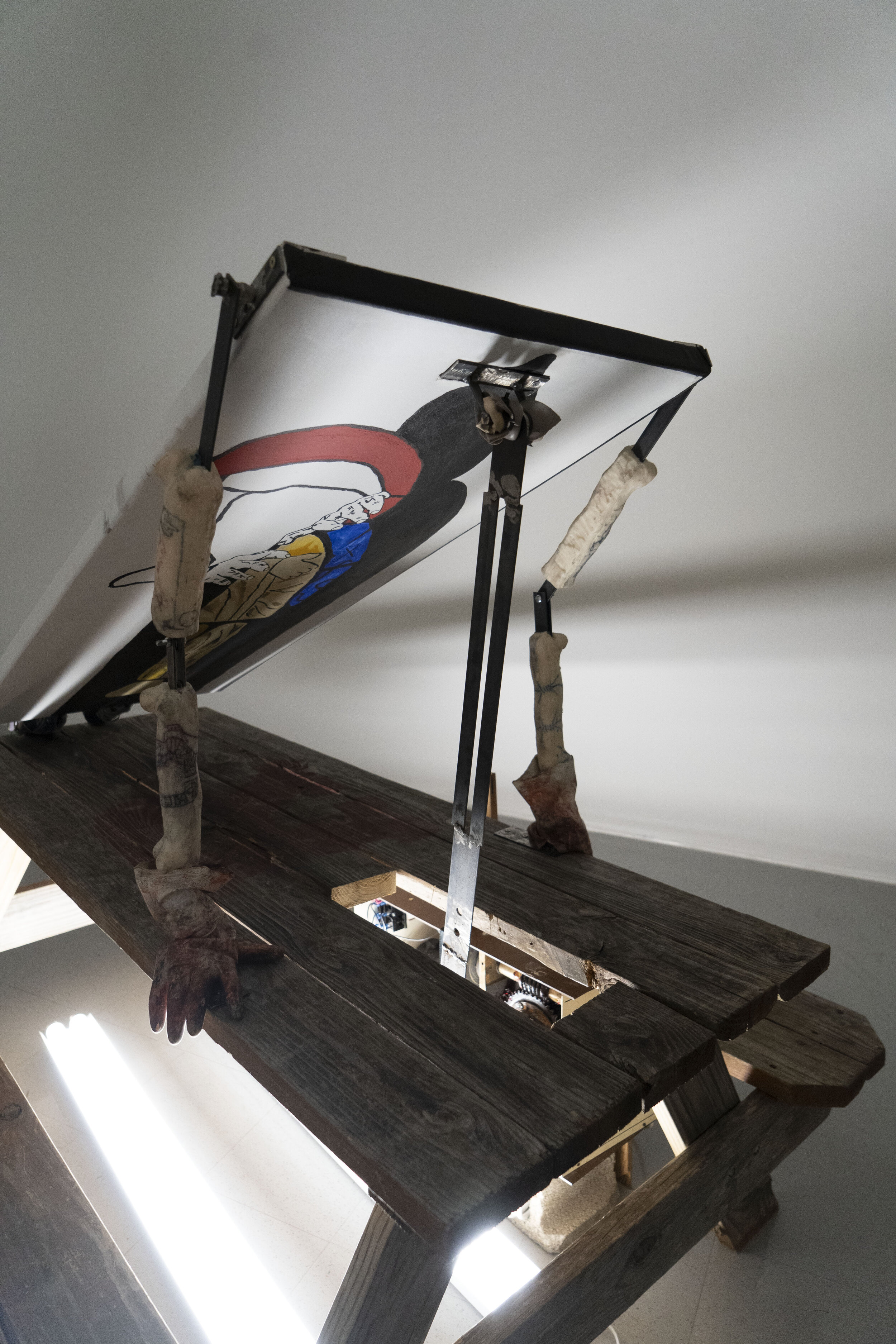
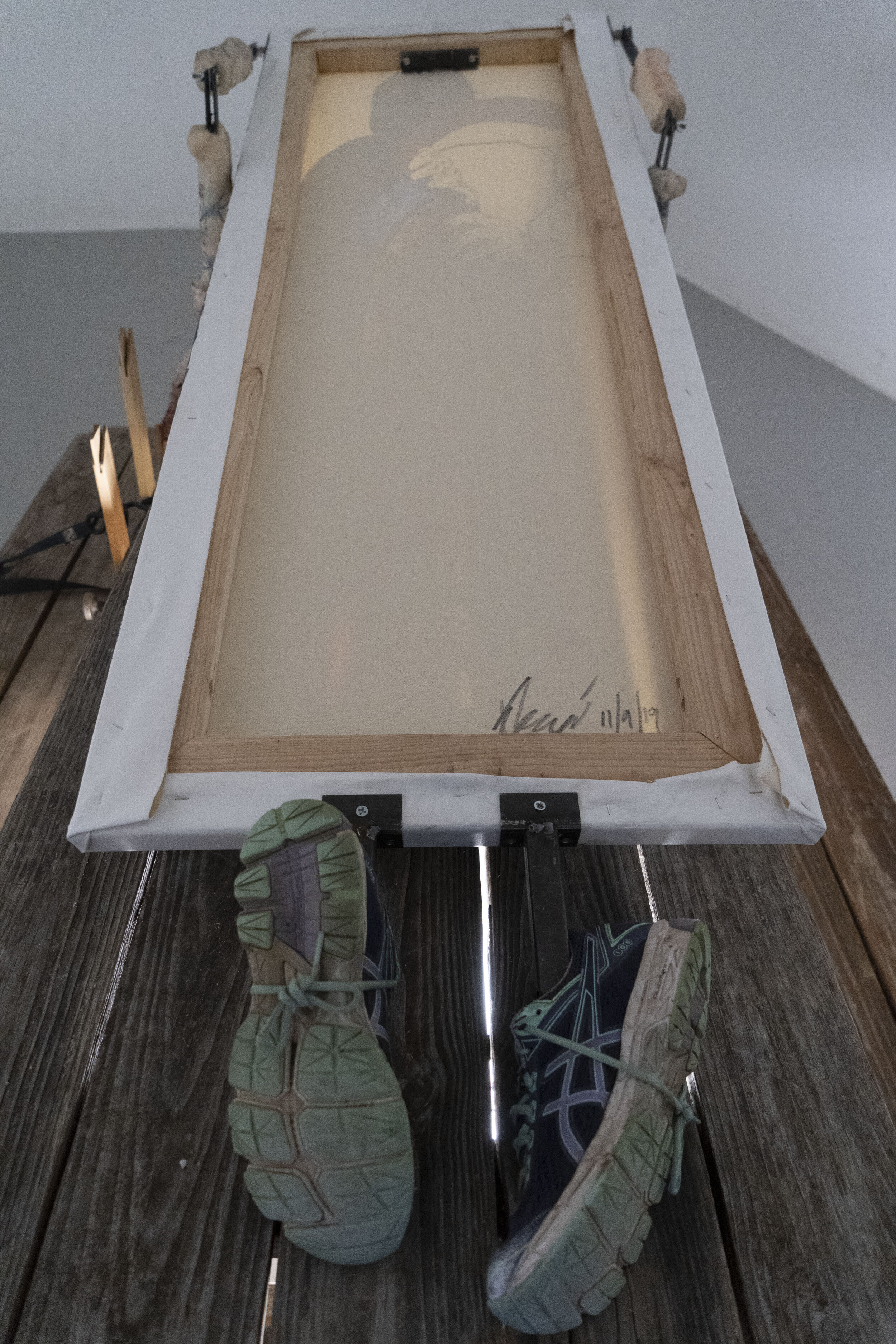
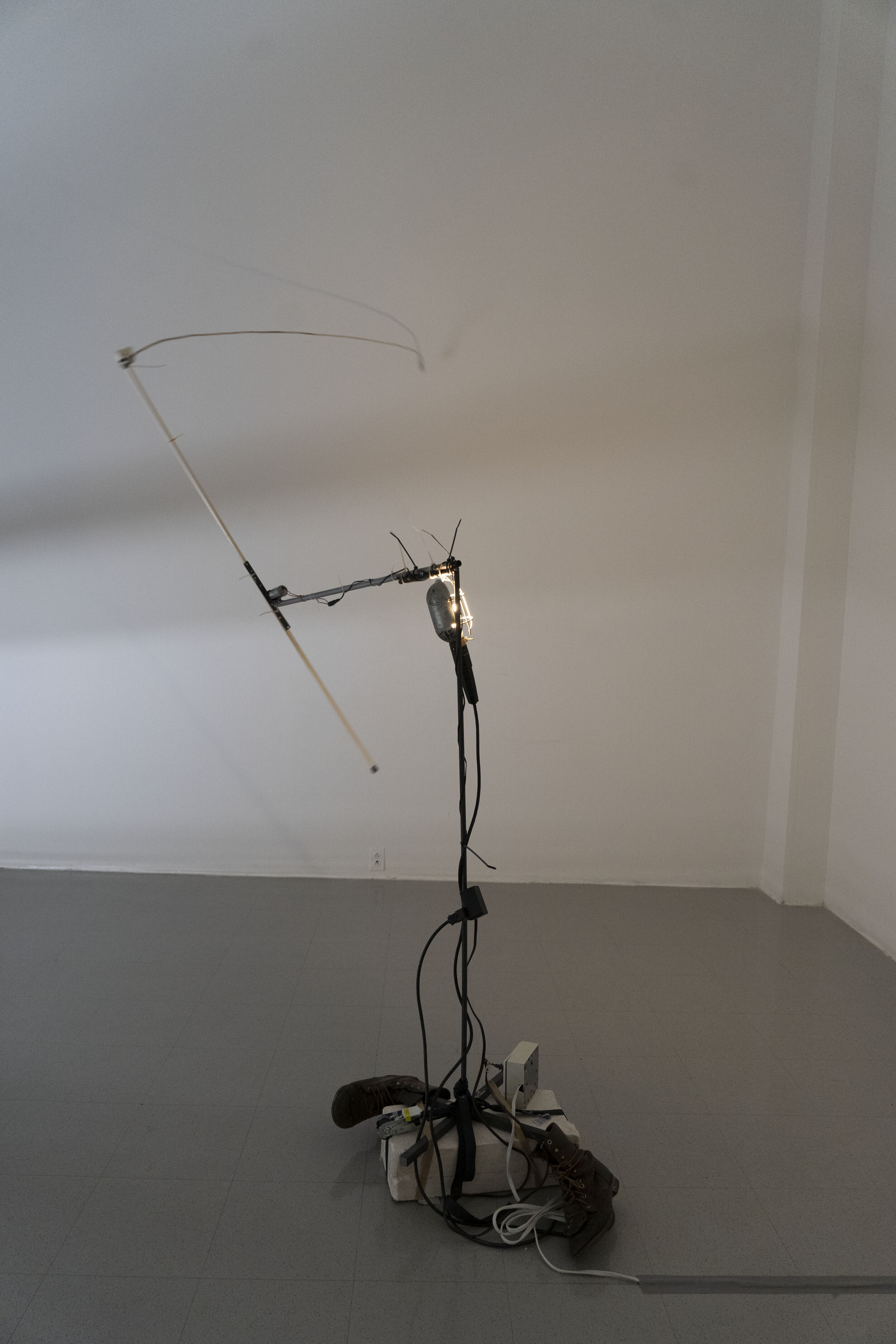

A mechanical painting in the scale of a human figure is working out on a picnic table. The picnic table is being whipped on its seating area. The painting is doing push-ups on top of the table top while wearing white messy paint stained gloves and ill fitting colorful workout shoes. It has poorly done tattoos on the “bones” of its arms. The “figure” doing the whipping is a pvc pipe with a rope at its end that is held up by a steel stand loosely wearing leather boots. The steel stand is haphazardly mounted to a plaster mold block with a work light connected to the horizontal arm that extends outward with the whip. The mechanical figure slowly performs the workout constantly throughout the exhibition hours while the whipping figure is activated by the viewer with a sensor at its base.
The imagery of the painting is a holy anonymous head with tattooed hands holding a body fragment of a saintly figure in front of the shadow of a cathedral doorway. The hands on the hallowed head are lifting and presenting this saintly figure from the darkness behind it while thus creating or maintaining its own holiness in the presentation. The starkness of the imagery references historical record drawings of stained glass from European cathedrals. The painting acts as a symbol of the artist right now; equating the current field of thought in art to institutions of Western theology. It is a demonstration of presenting the “good” through imagery or, in other words, virtue signaling. The painting appears to be working out in hopes of becoming stronger but is struggling on the Rutgers picnic table. The struggle of the painting on the community picnic table symbolizes the actual strength of an image beyond an institution of educated reviewers. The whip acts as the bang on the open gate or the preach to the choir, to commend those who already accept the opinion or are open to it. It attacks the institution that supports and applauds its controlled and futile rebellion.
